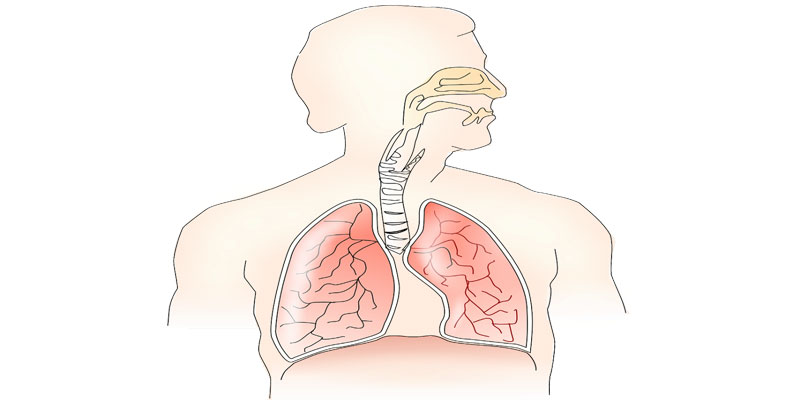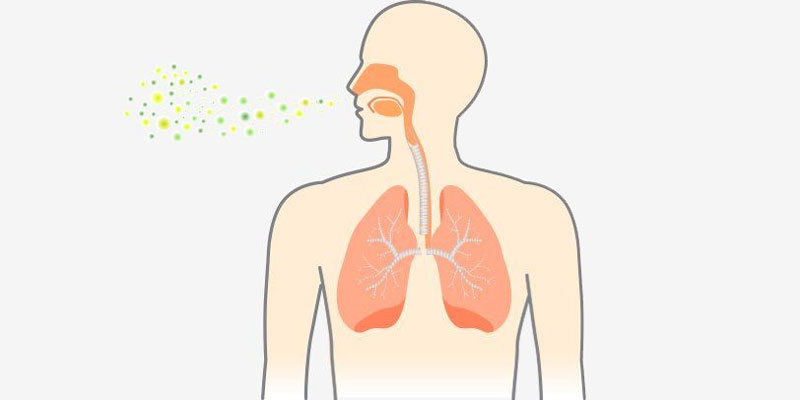Difference Between Bronchitis and Pneumonia
Jan 03, 2024
When you've fully recovered from a cold, you're ready to go on with the rest of your life. However, a word of caution: since your immune systems are already overwhelmed, something much worse might develop deep inside your lungs. Infections in the upper airways, such as the common cold, make your lower airways more susceptible to attack by bacteria and viruses; this is when bronchitis and pneumonia may develop.
Although the disorders are somewhat distinct from one another, they do have numerous commonalities. Let's look at the causes, symptoms, and treatment options with the help of pulmonologist Leslie Tolle, MD, so that we can better understand each of these conditions.

Bronchitis
Do you have any idea what it's like to have a cold? Bronchitis is a more severe form of the common cold. Bronchitis is an inflammation of the tubes that transport air in and out of your lungs, and it most often develops after a viral illness such as a cold or the flu. You respond to this by coughing... and coughing... and coughing. This persistent hacking usually causes mucus to come up from your lungs in a yellowish-green color. Other symptoms of bronchitis, in addition to coughing, may include the following:
- A wheezing sound may be heard while breathing.
- Body aches (plus a sore chest from all that coughing).
- Fatigue.
- A slight fever.
- Different kinds of bronchitis
- There are two primary categories of bronchitis: chronic and acute.
Chronic bronchitis is characterized by symptoms that last for at least three months and reoccur over the years. A previous respiratory illness may trigger the condition, prolonged exposure to cigarette smoke, or the presence of other irritants in the air surrounding the patient. A viral illness, like the common cold, is often the starting point for acute bronchitis. Smoking may contribute to the onset of the condition and exacerbate its symptoms. In most cases, acute bronchitis resolves within ten to fourteen days, but certain symptoms may persist for up to three weeks.

Bronchitis Treatment and Management
In most cases, the best way to treat the short-term form of bronchitis is to let it run its course. Available over-the-counter Medications could be used to assist break up mucus, battle a fever, or relieve pains. If you have a bacterial illness, your doctor may recommend taking antibiotics. Bronchitis chronic, on the other hand, can never be cured. (This condition is called COPD, which stands for chronic obstructive pulmonary disease.) Your doctor may suggest various drugs, treatments, or even surgery.
Pneumonia
Pneumonia is a distinct illness that does not impact the airways like the common cold does. Instead. Due to the swelling and the subsequent mucus production, oxygen and carbon dioxide cannot enter the circulation as quickly as the lungs. Pneumonia may be caused by many organisms, including bacteria, viruses, and fungus. The following are some of the symptoms of the illness:
- a cough that produces mucous.
- A very high temperature, reaching up to 105 degrees Fahrenheit (40 C).
- Symptoms include shortness of breath or rapid breathing.
- Fatigue.
- Sweating.
- Chills.
- Muscle ache.
Additional concerns may include fluid accumulation in the lungs, the introduction of germs into your circulation, or the development of a lung abscess, a pus-filled cavity inside the lungs. When someone coughs or sneezes, fluid droplets may be released into the air, spreading pneumonia. This is also the case with bronchitis. You may acquire these germs in two ways: either by breathing them in or by contacting a surface that is infected.

Treatment of Pneumonia
While some "walking pneumonia" episodes are minor, the condition may occasionally be severe enough to need immediate medical attention. more crucial for vulnerable communities, including those who are:
- Children less than two years old, including infants and toddlers.
- Adults who are 65 years of age or older.
- Those who are carrying a child.
- those suffering from illnesses that damage either the lungs or the heart
Patients suffering from neurological diseases such as dementia, Parkinson's disease, or stroke may make swallowing difficult. Your treatment options may change depending on the underlying cause of your pneumonia. Antibiotics are the typical course of treatment for bacterial pneumonia. On the other hand, viral pneumonia may be treated with antiviral medicine, over-the-counter pain killers, and breathing treatment. Vaccines have the potential to protect against some forms of bacterial pneumonia in individuals who are very young or very elderly.
Comparison Between Bronchitis and Pneumonia
These two illnesses have several comparable symptoms, including a hacking cough, fever, feeling exhausted, and a sore chest. In extreme circumstances, bronchitis might potentially develop into pneumonia. Pneumonia symptoms are often far more severe and, in certain instances, may even pose a significant danger to the patient's life. Contact your healthcare practitioner if you have symptoms that match either bronchitis or pneumonia and don't resolve within a week or if the symptoms keep worsening.





